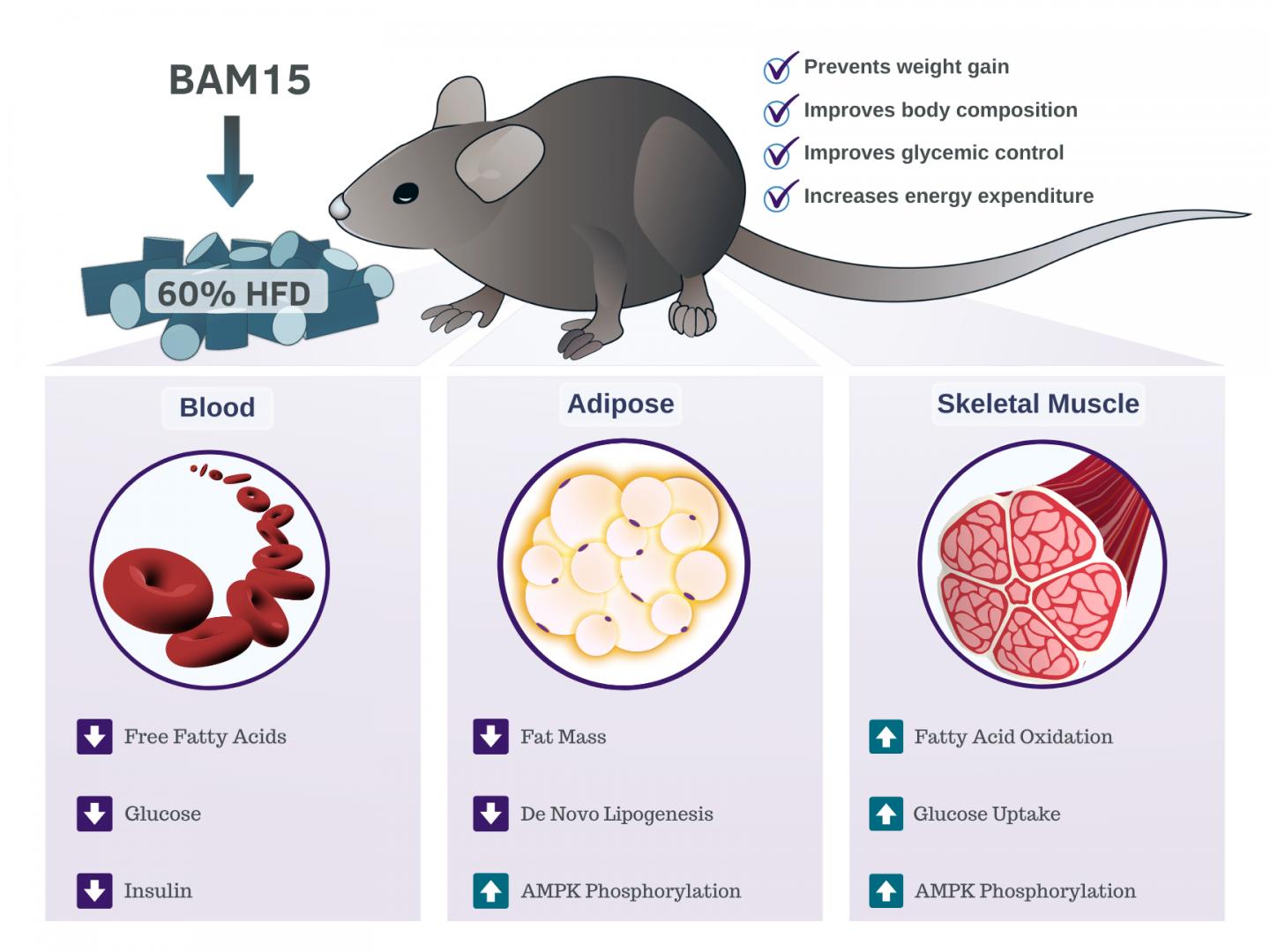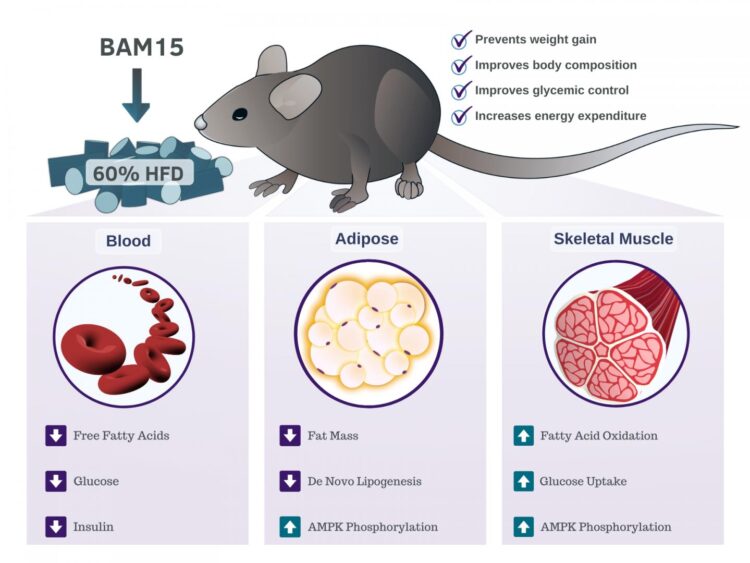Drug prevents weight gain, fat buildup, and reduces blood sugar

Credit: Graphic by Kathryn Pergola
BATON ROUGE, Louisiana – A new study offers the first evidence that a protein named BAM15 acts as an energy uncoupler and could be an effective drug for treating obesity and related diseases.
Obesity affects more than 650 million people worldwide and drives a number of dangerous health conditions, including type 2 diabetes, heart disease and more than a dozen deadly cancers. Global spending to treat obesity and obesity-related illnesses amounts to well above $150 billion a year.
“Despite this, only a handful of medications are currently FDA-approved for obesity treatment, and the people who take these drugs rarely achieve long-term weight loss,” said John Kirwan, Ph.D., Executive Director of the Pennington Biomedical Research Center in Baton Rouge, Louisiana. “Halting the obesity epidemic requires new, more effective medications. This research represents a very promising step in the discovery process. We hope that in the not-too-distant future, BAM15 or related compounds will advance to clinical drug development and become a viable treatment option for patients with obesity.”
BAM15 differs from the existing weight-management medications, which largely work by reducing the amount of food a person eats or the calories their bodies absorb. BAM15 works by making the mitochondria, the power plants of the cell, less efficient. The result is that the mitochondria burn more energy.
Researchers believe BAM15 could be used to treat a number of health conditions including diabetes, fatty liver disease and some forms of cancer.
In the new study, Pennington Biomedical scientists show for the first time that mice given BAM15 are resistant to weight gain by burning more calories than their untreated counterparts. Other benefits of BAM15 include:
- Reducing blood sugar and insulin levels, regardless of weight loss.
- Improving sensitivity of skeletal muscle to the effects of insulin. Skeletal muscle insulin resistance is a primary risk factor for the development of type 2 diabetes.
- Reducing fat accumulation overall by restricting fat from building up in the liver, kidney, and blood. Accumulating too much fat in one’s liver, kidneys, or blood can damage the organs and lead to heart disease.
The study “BAM15 Mediated Mitochondrial Uncoupling Protects Against Obesity and Improves Glycemic Control” was published in the journal EMBO Molecular Medicine.
###
About the Pennington Biomedical Research Center
The Pennington Biomedical Research Center is at the forefront of medical discovery as it relates to understanding the triggers of obesity, diabetes, cardiovascular disease, cancer and dementia. The Center conducts basic, clinical, and population research, and is affiliated with Louisiana State University. The research enterprise at Pennington Biomedical includes over 450 employees within a network of 40 clinics and research laboratories, and 13 highly specialized core service facilities. Its scientists and physician/scientists are supported by research trainees, lab technicians, nurses, dietitians, and other support personnel. Pennington Biomedical is located in state-of-the-art research facilities on a 222-acre campus in Baton Rouge, Louisiana. For more information, see http://www.
Pennington Biomedical Research Center
6400 Perkins Road
Baton Rouge, LA 70808
Media Contact
Ted Griggs
[email protected]
Original Source
https:/
Related Journal Article
http://dx.





